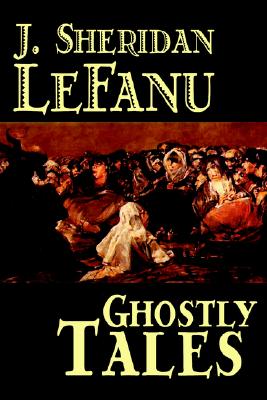- Welcome to FictionDB, Guest
- | My Account
- | Help

Ghostly Tales — J. Sheridan Le Fanu / Joseph Sheridan Le Fanu

From "Schalken the Painter": "There exists, at this moment, in good preservation a remarkable work of Schalken's. The curious management of its lights constitutes, as usual in his pieces, the chief apparent merit of the picture. I say APPARENT, for in its subject, and not in its handling, however exquisite, consists its real value. The picture represents the interior of what might be a chamber in some antique religious building; and its foreground is occupied by a female figure, in a species of white robe, part of which is arranged so as to form a veil. The dress, however, is not that of any religious order. In her hand the figure bears a lamp, by which alone her figure and face are illuminated; and her features wear such an arch smile, as well becomes a pretty woman when practicing some prankish roguery; in the background, and, excepting where the dim red light of an expiring fire serves to define the form, in total shadow, stands the figure of a man dressed in the old Flemish fashion, in an attitude of alarm, his hand being placed upon the hilt of his sword, which he appears to be in the act of drawing. . . ."
In addition to M. R. James, several other writers have expressed strong admiration for Le Fanu's fiction. E. F. Benson stated that Le Fanu's stories "Green Tea", "The Familiar", and "Mr. Justice Harbottle" "are instinct with an awfulness which custom cannot stale, and this quality is due, as in The Turn of the Screw, to Le Fanu's admirably artistic methods in setting and narration". Benson added, "[Le Fanu's] best work is of the first rank, while as a 'flesh-creeper' he is unrivalled. No one else has so sure a touch in mixing the mysterious atmosphere in which horror darkly breeds".


